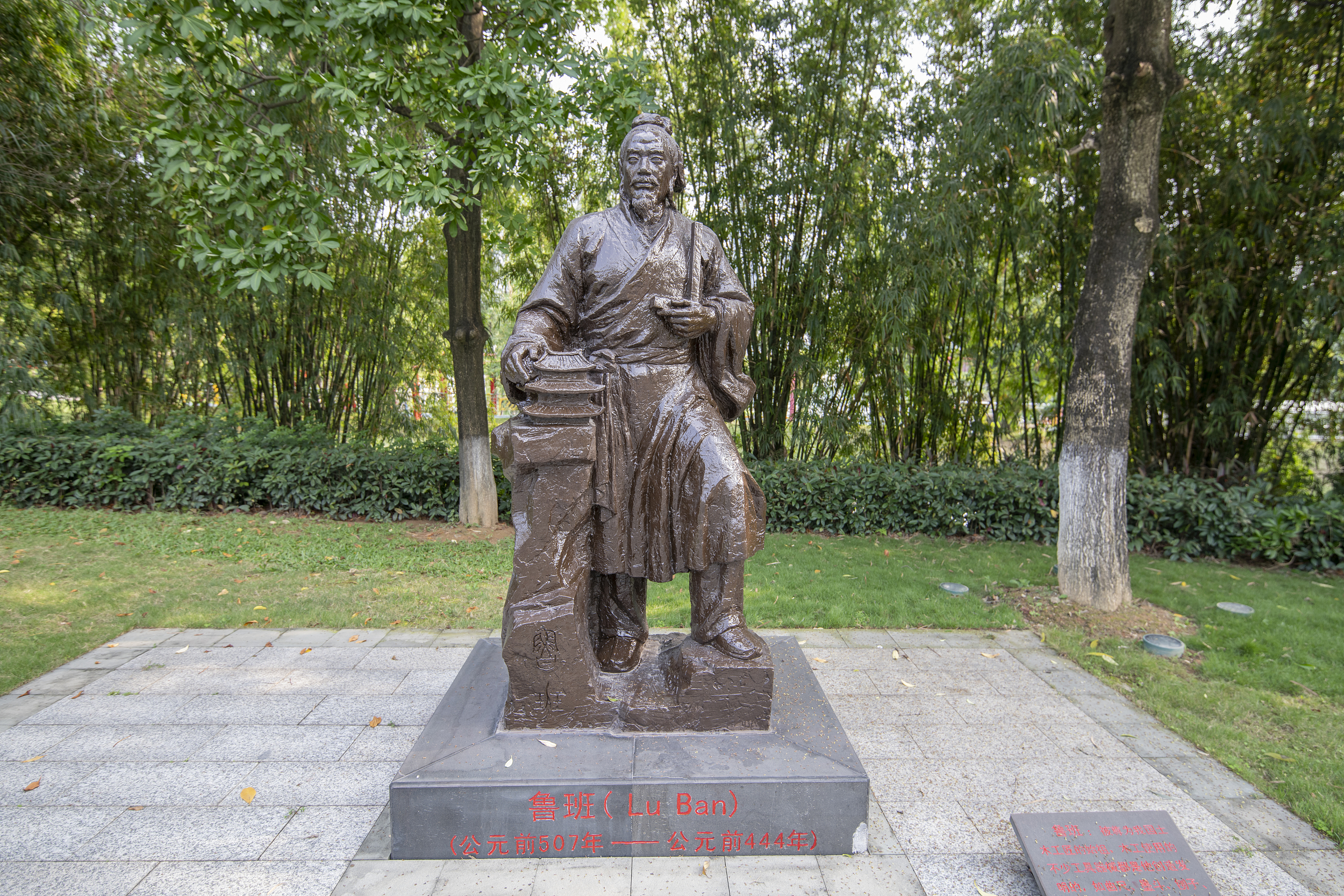Crafting A Legacy

A statue of Luban in south China's Guangzhou city. (PHOTO: VCG)
By Staff Reporters
Lu Ban (507 -440 BC), an ancient Chinese carpenter and inventor, was revered as the god of craftsman in history. His achievements have become the stuff of legends. The distinguishing characteristic of Lu Ban's inventions was his desire to benefit ordinary people. He was a peasant engineer, exemplifying the value of knowledge acquired through decades of trial and error. He is best known for inventing the frame saw, which is the result of his keen observations of life.
Wood was the predominant construction material in ancient China. Consequently, the most prevalent building tools were portable and lightweight.
On one occasion Lu Ban was informed that he and his team would be brutally punished if they missed the deadline for building a palace. Timber could only be gathered and prepared using axes. As a result, the work was very time-consuming.
Concerned about the slow pace of the workers, Lu Ban rushed up a very steep slope to the construction site to see how things were going. Grabbing hold of plants to pull himself up as he climbed, he sliced his hand on the serrated edge of one of the grasses. This provided him with the concept for the teeth that enable a saw to quickly and neatly cut through wood, which improved working efficiency.
A collection of ancient texts, such as Mozi-Lu's Question, includes constant references to Lu Ban constructing a bamboo "bird" (perhaps the original form of the kite) that could stay aloft for up to three days and a mechanized "wooden horse vehicle" that could walk on its own.
Lu Ban's innovations are vital evidence of Chinese wisdom and a spirit of exploration. His tales transcend historical truth and represent the complex cultural tradition he stood for.







